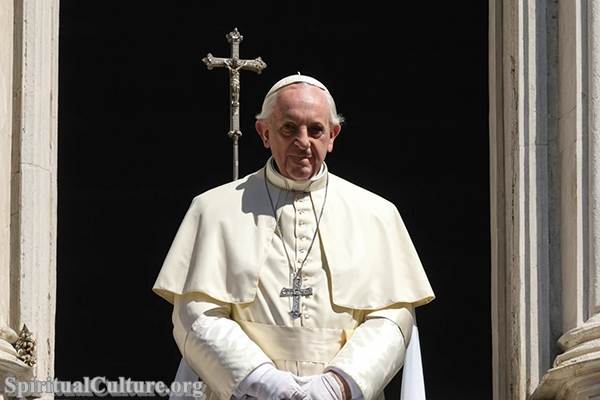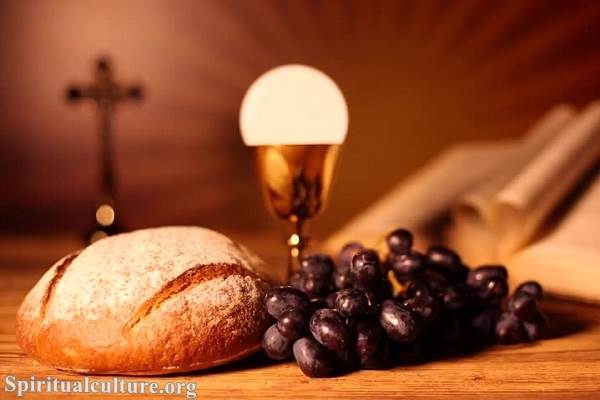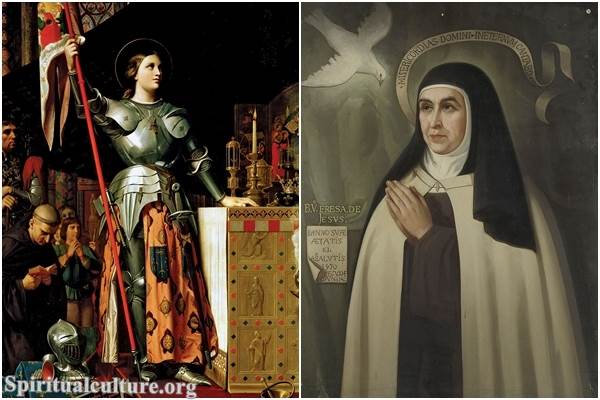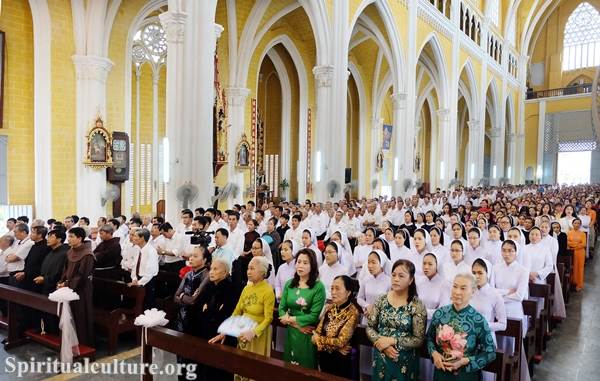Marriage and family are not merely social arrangements or emotional partnerships in the Catholic tradition. They are sacred realities — reflections of God’s covenant, vessels of grace, and the very building blocks of the Church and society. In an age where the meaning of love, fidelity, and home is often contested or confused, the Catholic vision offers a deeply rooted, spiritually rich understanding of marriage and family life.
As Spiritual Culture, we invite you into this exploration not to impose rules but to uncover the sacred rhythms woven into human life — rhythms that lead not only to stability and peace, but to holiness and joy. This article will delve into how the Catholic Church understands marriage as a sacrament, what it teaches about the role of family, how it addresses challenges in modern life, and what it means to call the home a “domestic church.”
Let us begin where all things begin — with love that gives itself away.
The Sacrament of Matrimony: A Holy Covenant
Marriage, in Catholic teaching, is more than a contract — it is a covenant, a sacred vow that mirrors God’s unbreakable love for humanity.
Marriage as a Sacrament
In Catholic theology, marriage is one of the seven sacraments — visible signs instituted by Christ to give grace. The Catechism of the Catholic Church (CCC 1131) defines sacraments as “efficacious signs of grace…by which divine life is dispensed to us.”
When a man and a woman freely give themselves to each other in lifelong fidelity, open to the gift of children, they are not only forming a natural union — they are stepping into a mystery. Their love becomes a channel of divine grace. The Sacrament of Matrimony, as expressed in CCC 1601, is “a covenant by which a man and a woman establish between themselves a partnership of the whole of life… ordered toward the good of the spouses and the procreation and education of offspring.”
Biblical Foundations
From the beginning, Scripture testifies to the sacred nature of marriage. In Genesis, God creates man and woman and calls them to become “one flesh” (Genesis 2:24). Jesus reaffirms this in the Gospels, saying, “What God has joined together, let no one separate” (Matthew 19:6). St. Paul even likens marriage to the love between Christ and the Church (Ephesians 5:25-32), revealing its sacramental depth.
Marriage as Vocation
Just as some are called to the priesthood or religious life, Catholicism teaches that marriage is a vocation — a divine calling to love another person completely and to raise children in the faith. It is not merely a personal choice, but a path to holiness.
The Family: The Domestic Church
The Catholic Church calls the family “the domestic church.” This phrase, deeply rooted in tradition, emphasizes the sacred role of the family as the primary place where faith is lived and passed on.
What Is the Domestic Church?
The term originates in early Christian communities and was reaffirmed in the documents of the Second Vatican Council. As Lumen Gentium (11) states, “In it parents should, by their word and example, be the first preachers of the faith to their children.”
This means the home is not just a place of shelter, but of prayer, formation, service, and love. The daily tasks of parenting, working, forgiving, and celebrating all become acts of spiritual significance.
Roles Within the Family
- Parents as first educators: Parents are entrusted with the primary responsibility of educating their children in virtue and faith.
- Children as gifts, not projects: Each child is seen not as a possession, but a soul entrusted to the care of the parents.
- Grandparents and extended family: Honored for their wisdom and supportive roles, they help pass on faith and tradition.
The Family as a Seedbed of Society
Pope John Paul II, in Familiaris Consortio, emphasized that “the future of humanity passes by way of the family.” A stable, faith-filled family becomes a wellspring of virtue for society at large.
Openness to Life: Love That Welcomes
Catholic teaching on openness to life often challenges modern cultural norms, yet it flows from a deep spiritual truth: love, in its fullness, is generous, creative, and life-giving.
Fruitfulness as a Gift
The Church teaches that conjugal love must remain open to the possibility of life. This does not mean couples must have as many children as physically possible, but rather that they remain open to God’s plan, embracing the role of co-creators.
Psalm 127:3 says, “Children are a heritage from the Lord, the fruit of the womb a reward.”
Natural Family Planning (NFP)
Rather than artificial contraception, the Church encourages Natural Family Planning — methods that respect the natural rhythms of the body. This promotes mutual respect, communication, and responsibility within marriage, aligning with the dignity of human sexuality.
Moral Foundations
The Catholic stance is not about control, but about coherence with human dignity. As Pope Paul VI wrote in Humanae Vitae, “Each and every marital act must of necessity retain its intrinsic relationship to the procreation of human life.”
Challenges to Marriage and Family Today
Modern society often undermines the sacredness of marriage and family life. The Catholic Church acknowledges these pressures while offering countercultural wisdom and hope.
Divorce and Broken Homes
While divorce is often a painful reality, the Church holds fast to the indissolubility of marriage. However, it also offers pastoral care, annulments (where appropriate), and healing ministries. The focus is on restoration, not judgment.
Same-Sex Unions
Catholic teaching holds that marriage is between one man and one woman, open to life. While this teaching is firm, the Church also emphasizes the dignity of every person and rejects unjust discrimination. It calls for love and compassion even in disagreement.
Cohabitation and Casual Relationships
The Church calls for sexual intimacy to be reserved for marriage, not out of repression, but to honor the full meaning of the human body and soul. This view upholds commitment, fidelity, and respect.
Love in Daily Life: Living the Sacrament
Catholic marriage is not a static state, but a dynamic journey. Grace is given not just at the wedding, but every day — through dishes washed, hands held, forgiveness offered, and prayers whispered at bedtime.
Prayer and Sacraments in the Home
- Praying as a couple and as a family deepens intimacy and invites God into daily life.
- Attending Mass together strengthens unity and connects the family to the larger Body of Christ.
- Receiving the Eucharist and Reconciliation regularly keeps the soul aligned with divine love.
Forgiveness and Growth
No marriage is perfect. The Catholic vision embraces the messiness of love. Forgiveness, patience, and perseverance are signs of grace. As Pope Francis notes in Amoris Laetitia, “A perfect family does not exist, but we should not be afraid of failure; we must learn to forgive and to move forward.”
Marriage Preparation and Ongoing Support
Pre-Cana and Formation
Couples preparing for Catholic marriage go through a formation process called Pre-Cana, which includes discussions on communication, faith, finances, sexuality, and parenting. This preparation affirms that marriage is not just about romance, but lifelong discipleship.
Support Ministries
Parishes and dioceses offer programs for:
- Newlyweds
- Parenting support
- Marriages in crisis
- Natural Family Planning education
- Bereavement and healing
The Church walks with families through every stage of life.
Saints, Scripture, and Sacred Witness
Saints Who Modeled Holy Marriage
- Sts. Louis and Zélie Martin (parents of St. Thérèse of Lisieux): Their everyday faith and loving parenthood led to canonization.
- St. Gianna Beretta Molla: A physician, wife, and mother who laid down her life for her unborn child, witnessing love’s ultimate sacrifice.
Scriptural Anchors
- 1 Corinthians 13: “Love is patient, love is kind…”
- Ephesians 5: The mystery of marriage and Christ’s love for the Church
- Proverbs 31: The dignity of a virtuous spouse
Reflect and Reimagine
Marriage and family life, through the Catholic lens, are sacred adventures — not always easy, but always graced. They invite us to become co-creators with God, to make our homes holy ground, and to see in the face of our spouse or child the face of Christ.
This vision is not reserved for the few, but offered to all — not as an ideal we must reach before being loved by God, but as a path on which His love is already walking with us.
As Spiritual Culture, we bless your journey — wherever you are — and invite you to rediscover the sacredness of home.
“As for me and my house, we will serve the Lord.” – Joshua 24:15




